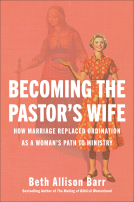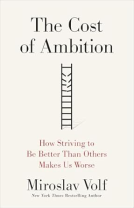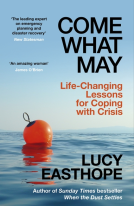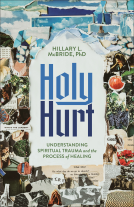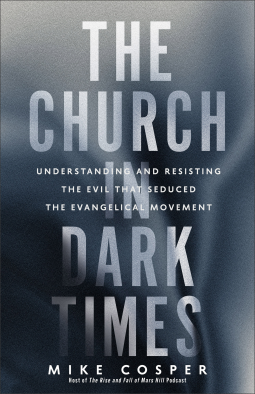
The Church in Dark Times
Understanding and Resisting the Evil That Seduced the Evangelical Movement
by Mike Cosper
This title was previously available on NetGalley and is now archived.
Send NetGalley books directly to your Kindle or Kindle app
1
To read on a Kindle or Kindle app, please add kindle@netgalley.com as an approved email address to receive files in your Amazon account. Click here for step-by-step instructions.
2
Also find your Kindle email address within your Amazon account, and enter it here.
Pub Date 19 Nov 2024 | Archive Date 29 Nov 2024
Baker Academic & Brazos Press | Brazos Press
Talking about this book? Use #TheChurchinDarkTimes #NetGalley. More hashtag tips!
Description
In The Church in Dark Times, cultural critic Mike Cosper unveils this dynamic in the growing crisis of abuse and other failures in modern evangelical churches. Drawing on the work of twentieth-century political theorist Hannah Arendt, Cosper explores what we can learn from her theory of the "banality of evil"--the thoughtlessness that allows ordinary people to become complicit in all manner of corruption. He uncovers the underlying causes of the breakdowns of the church and offers practices that foster healing and renewal.
This book will engage Christian leaders and all followers who want to better understand how church crises keep happening--and how we can resist them and move forward.
Available Editions
| EDITION | Other Format |
| ISBN | 9781587435737 |
| PRICE | US$19.99 (USD) |
| PAGES | 208 |
Available on NetGalley
Featured Reviews
For many of us from my own generation, there's no more powerful example of the seduction of evil than the rising of Adolf Hitler and Nazi Germany.
For most of us, whether survivors of childhood abuse or those who survived other significant traumas, we often expect evil to be obvious - the evil guy in the dark alley or the powerful dictator over an evil movement or nation or organization. However, as we head into Mike Cosper's "The Church in Dark Times: Understanding and Resisting the Evil That Seduced the Evangelical Movement," we are reminded that malevolence is often more subtle and kept alive by our best intentions and seemingly righteous ideas.
If you don't believe that evil has seduced much of the current evangelical movement, the odds are fairly strong you'll struggle with the very foundation of "The Church in Dark Times."
I, for one, do believe it.
Drawing on the work of twentieth-century political theorist Hannah Arendt, Cosper dives into her theory of the "banality of evil" - the thoughtlessness that allows ordinary people to become complicit in all kinds of manner of corruption. It's an idea not far removed from another book I'm reading right now by Jemar Tisby, ""The Spirit of Justice."
Cosby explores the growing crisis of abuse and other failures in modern evangelical churches, lifting the veil to expose underlying causes yet, like Tisby, also exploring reasons for hope and practices that foster healing and renewal.
Indeed, "The Church in Dark Times" is very committed to both understanding and resisting this evil, hence its title, yet also uncompromising in portraying it. This isn't a melodramatic work - instead, it's a powerfully researched look that largely avoids politicization and likely has more significant crossover appeal than other titles I've read on this particular subject.
Cosper is a cultural critic who produced and hosted The Rise and Fall of Mars Hill podcast. He services as director of podcasts for Christianity Today and co-hosts the weekly podcast The Bulletin. "The Church in Dark Times" is an expansion, really, of Cosper's Mars Hill podcast as it looks at those very issues and applies them in a myriad of different ways. "The Church in Dark Times" is a well-researched, informative, engaging, and very necessary portrayal of the evil that has seduced the evangelical movement and how it can be resisted.
As humans, we like simple answers to explain complex things and thus we seek out ideologies to make sense of the world. In this book, Cosper explains how the Christian church has increasingly adopted ideologies to explain life when they will always fall short of theology. "The allure of an ideology is that it flattens the complexity of the real world and thus insulated and inoculates a person from the need to think."
Cosper was the host of the popular Rise and Fall of Mars Hill podcast and has seen first hand how those in the church who cling to mission statements can manipulate and hurt others when they are adopting an ideology that is more man-centered than God-centered. Writings from Hannah Arendt, who was a German Jew living during WWII, added a richness to the discussions as Cosper hearkened back to her work to show that not much has changed between now and 70 years ago.
I appreciated the philosophical discussions in this bookand how Cosper highlighted how we always want to fix problems in our culture and don't often recognize that things are complicated. Some of the writing could be a bit meandering and hard to follow at points.
 Rachael N, Reviewer
Rachael N, Reviewer
Thanks to NetGalley and the publisher for the e-ARC. This book is one that will live long in my thinking and memory. It examines the aftermath of mega churches and fallen leaders in a way that is critical but ultimately hopeful, engaging with Hannah Arendt’s work. It’s also beautifully written. Definitely one to read.
 Allyson W, Reviewer
Allyson W, Reviewer
Mike Cosper, perhaps best known for the podcast “The Rise & Fall of Mars Hill,” returns with another attempt to diagnose what has gone wrong with the evangelical church in America. Multiple scandals and abuse have caused some to call themselves “exvangelical” and say “no thank you” to what the institutional church is offering.
Cosper lays much of the blame on ideology, which often becomes a substitute for truth. This leads to a mindset where the mission is so critical that the sins of the leader are excused, whistleblowers are punished, victims are blamed, and reality must bend to serve the new narrative. He employs philosopher Hannah Arendt as a “conversation partner” as well as drawing illustrations from the Mars Hill debacle.
The author offers three practices for Christians -- and the larger church -- to embrace as they learn dependence on God instead of the tools of modernity. They are (1) solitude; (2) storytelling and culture making; and (3) worship. In this section, Cosper pulls from the wisdom of Eugene Peterson, Beth Moore, Aleksandr Solzhenitsyn, Dallas Willard, and Peanuts.
My one quibble with the book is the number of film, TV, and pop song references. I grew up in the conservative wing of the evangelical church and was not allowed to attend movies or listen to rock music. Consequently, the point of these many examples was lost on me. Nevertheless, this is a worthwhile book, highly readable and relevant.
 Yakub T, Educator
Yakub T, Educator
In The Church in Dark Times, cultural critic Mike Cosper unveils this dynamic in the growing crisis of abuse and other failures in modern evangelical churches. As a Christian leader, I really appreciate this work and I hope many Christian leaders in the world can engage with this topic too.
I have really mixed feelings about this book. On one hand i enjoyed the philosophical discussions based on the writings of Hannah Arendt who was a German Jew living during WWII.
The message of the book is clear - ideology is not the answer, always wanting to fix problems in culture and not recognising that things are more nuanced is not the answer, trying to find one 'bad guy' to blame is not the answer. However it also felt unfocused and meandering at times which took away from the punch
I was also hugely disappointed with the Afterword which seemed completely lacking in nuance, perspective when discussing the horrors occuring in Gaza. I expect more from an author who spent a book discussing the things he did.
Thanks to Netgalley and the publisher for a free eARC of this book
 Keith L, Educator
Keith L, Educator
Got an ARC of this from Netgalley. I enjoyed this follow up book to the rise and fall of mars hill about how Ideology can take route in a church and what could it look like to resist it. I’m glad it wasn’t just a rehash of Rise and fall of mars hill, but a thoughtful response. I have enjoyed that Mike Cosper is able to acknowledge some deep brokenness but use that opportunity to point towards a better way rooted in the hope of Jesus.
 Conrade Y, Reviewer
Conrade Y, Reviewer
What are dark times? What are the risks facing the evangelical churches today? How do ordinary churches fall down the path of shame? What are the signs of seduction? What are the social and cultural influences that we need to be aware of? What ideological, spiritual, or structural factors are involved in scandals? These questions are dealt with in depth by Mike Cosper who had previously produced and hosted the podcast, "The Rise and Fall of Mars Hill." Writing with Hannah Arendt's insights on human behaviour and experiences of abuse, he defines dark times under the umbrella of totalitarianism, and how totalitarian ideology is seductive to the modern mind. Churches need to discern and resist the temptation toward evil within their organizations. Anchored on the Bible verse to "Resist the devil, and he will flee from you," (James 4:7), author Mike Cosper exposes the telltale signs of abuses, conspiracies, denials, violence, and the infiltration of devilish ideologies that sought to hide the Truth. Using the defunct Mars Hill Church as a backdrop to the book, Cosper seeks to extend Arendt's reflections on her experiences with the evil Nazi regime. Dark times are not simply about totalitarianism. It includes how the world becomes disconnected from goodness and purpose.
Part One of the book lists the signs and symptoms of environments entering dark times.
Cosper aims at ideologies that distort Truth. He spends some time describing the demise of Mars Hill Church and the reasons that led to Pastor Mark Driscoll's fall from grace. Behind each rise in power of any institution or movement, beware of the evil ideologies that feed their growth. Such ideologies substitute the Truth with lies. They turn authority into authoritarianism. They coerce others to support their agendas. They subdue the good with attractive numbers. Often, external measures of success are used to hide underlying problems. Left unchecked, once the idol of ideology takes root, human wisdom, and personal agendas drive the organization deep into dark waters.
Part Two is an attempt to resist the road into dark times. Cosper learns from Eugene Peterson's life of preferring humble community over glitzy celebrity. He derives lessons from "A Charlie Brown Christmas" which highlights the beauty of love amid the hustle and bustle of a busy lifestyle. He provides practices to resist dark times:
1) Solitude to further spiritual formation (instead of popularity and accumulation of worldly success)
2) Storytelling and Culture Making to encourage the community
3) Worship that offers our service to God
My Thoughts
===============
I will answer three questions: How real is the problem? What is the extent? What is my general feeling about the book?
First, the problem is a real one. In the West, there is a general decline in Church attendance. Young people are avoiding Church, leaving many congregations to gray out. Many churches are struggling financially to maintain their premises. Church boards, community leaders, and pastors continually look to "successful" churches to draw people into their churches. They try to copy how the megachurches and growing churches do their ministry. With such focus on numbers and attractional-based strategies, the Church-Growth movement becomes the driving ideology. Pastors style themselves as celebrities to draw in the crowds. Drawing people into the Church becomes the primary concern while discipleship and spiritual disciplines take the back seat. Sometimes, claims that promote the gospel first become mere lip service as long as people are coming.
This leads us to the second question: "What is the Extent of the problem?" Cosper mentions a handful of churches that have fallen prey to the idolatry of ideology. In fact, the author claims to witness and experienced the problem first-hand. His three books all revolve around the problem of unhealthy Church. The first book looks at the Rise and Fall of Mars Hill. His second on the Sojourn Church where he was fired from, and the third book is this book which becomes more general. Critics might argue that Cosper is exaggerating the problem. Surely things are not so bad? My answer is simply this: Better to heed the warning before anything worse happens. Just because a Church has no signs of being in dark times does not necessarily mean it will stay that way into the future. This calls for generational witness and teaching. Soldiers do not wait until there is a war before they get trained. Firemen do not wait passively for fires to happen before equipping themselves with firefighting skills. Schools should never wait until an earthquake before practicing earthquake drills. Likewise, Christian leaders should not presume that what happened to others will never happen to their parishes. Thus, even of the problem described by Cosper might not be widespread now, it is always good to heed the warning signs.
Finally, I feel that this book is written more as a warning rather than a description of the Church today. It is birthed out of ministry pains personally experienced by the author. Before we dismiss Cosper's description of the dark times facing the Church, we should take heed of not letting ideology become our idols. Faithfulness is more important than success. Keeping the Church pure is preferred to trying to make the Church palatable to the world. Before we can solve any problem, we need to understand what the problem is in the first place. Ask the right questions. Challenge the leadership toward Christlikeness over and above personal goals. I know of churches that have tried to push human agendas in the name of Jesus. Let theology speak louder than ideology.
Mike Cosper has been creating music, radio shows, and podcasts for more than twenty years. He produced and hosted The Rise and Fall of Mars Hill podcast and is director of podcasts at Christianity Today. He now cohosts a weekly podcast called The Bulletin. He's also the author of several books, including Recapturing the Wonder: Transcendent Faith in a Disenchanted World (Intervarsity Press). His other books include Faith Among The Faithless (Thomas Nelson), Rhythms of Grace and The Stories We Tell (both published by Crossway Books). Mike also served as one of the founding pastors at Sojourn Church in Louisville, Kentucky, from which he launched Sojourn Music – a collective of musicians writing songs for the church. He lives in Louisville, Kentucky with his wife, Sarah, and their daughters Dorothy and Maggie.
Rating: 4 stars out of 5.
conrade
This book has been provided courtesy of Baker Academic via NetGalley without requiring a positive review. All opinions offered above are mine unless otherwise stated or implied.
 Reviewer 1155610
Reviewer 1155610
I found much to like in this book. Mike Cosper discusses the growing crisis of abuse and discord occurring in the evangelical church. The author in some ways was picking up where he left off from his podcast "the rise and fall of Mars Hill" and extending the issues that occurred in that context out to the wider evangelical church in America. I enjoyed his discussion of these issues. I also enjoyed the inclusion of the philosophical work of Hannah Arendt and how it relates to current times. A very timely book that would be good for anyone in the western church to read and think on.
I received an advanced copy of this book from netgalley. All opinions are my own.
 Steffan W, Reviewer
Steffan W, Reviewer
Mike Cosper does a great job of connecting our present realities and faultiness to a faith that seems to be divided along political lines, especially in the western world. What Mike does is really help the reader to understand how we got to the point we are at, and then helps us to see a way forward together. The church may be in dark times but there is a way forward and Mike using his experience helps us to see that.
 Jonathan N, Reviewer
Jonathan N, Reviewer
In The Church in Dark Times, cultural critic Mike Cosper unveils this dynamic in the growing crisis of abuse and other failures in modern evangelical churches. As a part of churches, we need to aware of this situation and anticipate it with highest capability.
The subject of church abuse greatly interests me on both personal and professional levels, so I'm always keen to learn more about how Christians are addressing this necessary topic. This book starts off with a bang as the author produced a podcast series on the Mars Hill Church scandal and does not shy away from naming the events that have caused great harm to parishioners and staff member alike. That being said, the book doesn't dwell on these specific awful incidents and instead shifts to the power that ideologies can hold over people, providing a fascinating analysis of the contemporary evangelical scene where the word ideologies could practically be added to the subtitle of the book. By examining philosopher Hannah Arendt's thoughts on what causes evil to be accepted—even actively promoted—it is clear that such beliefs and actions are wrong yet widely undertaken, which is the framework that this book uses to attempt to answer the question behind the abuses that Christians face in spiritual settings.
With more and more churches and pastors making the headlines for all of the wrong reasons, abuse and evil in the name of spirituality is ripe for research and understanding. The first half of The Church in Dark Times is more of a philosophical treatise, with the second half of the book shifting to a few practical suggestions meant to resist evil. Those who enjoy studying history and applying the lessons learnt will appreciate the lines of inquiry that this book raises, making the first half of the book an intellectual mine of thought-provoking questions meant to get us analyzing current events, politics, and the dynamics we can see playing out in our own contexts. What happens in society at large can also extend to churches and Christian organizations and vice versa, which this book deftly argues. Where I might have wanted to see more content is how churches can corporately break free from the prevailing narratives that are causing the abuse in the first place beyond what felt like individual actions of resistance. Unfortunately, there exists systems that are in place to protect perpetrators, which can be one of the worst evils to fight. Thankfully, this means that this book can have even more material to expand on should there ever be a second book following it.
The Church in Dark Times offers Mike Cosper’s insights on the seduction of evil and the failures of the modern evangelical movement, a timely follow-up to the conversation begun in The Rise and Fall of Mars Hill podcast.
Evil in the church can be surprisingly thoughtless. It often walks through the church’s front door dressed as recognition or prestige. Good people may support deeply flawed ideas or participate in the mistreatment of fellow church members and consider it “all in a day’s work,” a necessary and banal part of reaching a stated goal.
I especially appreciated Cosper’s enlightening references to the thinking of Hannah Arendt, the 20th-century political theorist best known for her observation about the “banality of evil.” Oppressed by Nazi antisemitism in the 1930s, she immersed herself in questioning the existence of so much evil. That’s a valid question for the church in an era characterized by abuse and cover-ups, narcissism and moral failure, toxic leadership and distorted ethical frameworks.
Having lived through “dark times” in Western Europe, Arendt traced the moral failure of murderous antisemitism to ideology, which she defines as a story that accounts for “all that has happened in the past, the struggles of the present, and the promise of a utopian future.” The ideology of a dysfunctional church excuses bad behavior or unbiblical thinking in the interest of the church’s mission or the protection of the stellar ministry of a stand-out church leader.
It’s easy to fall into the trap of momentum and enthusiastic groupthink around the idea that “this church” or “this talented pastor” is somehow necessary to God’s kingdom advancing, and this is where Cosper sounds the alarm:
God invites his church to find its strength by settling down ‘in complete dependence on me’ rather than reaching for the tools of modernity—ideology, celebrity, and movements.”
Cosper prescribes practices of solitude, storytelling, culture-making, and worship as safeguards against the siren call of evil. Alone with God and our own conscience, we discover our convictions and measure our actions against our values. Then armed with a clear vision of what it means to be a Christian, we act and speak in ways that impact culture for good. For me, this has led to writing and teaching, but for some of my favorite people, it means helping in their church’s youth ministry or making frequent trips to the hospital to comfort and encourage friends. Our work becomes our worship, and “worship always invites us into something larger than ourselves.”





